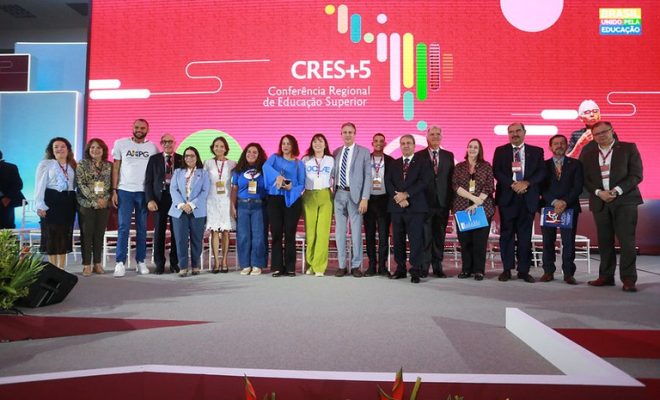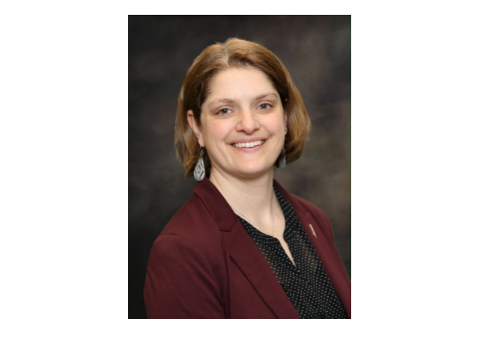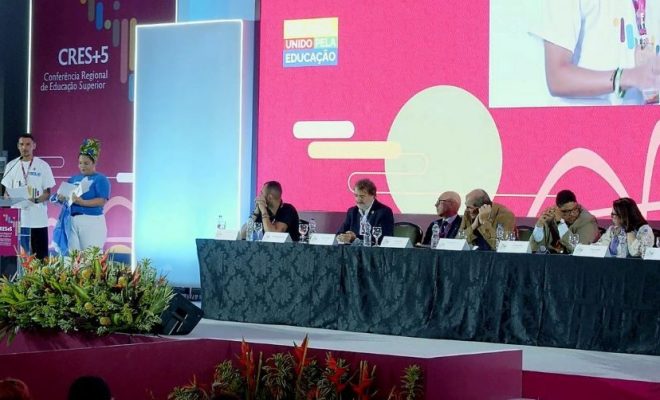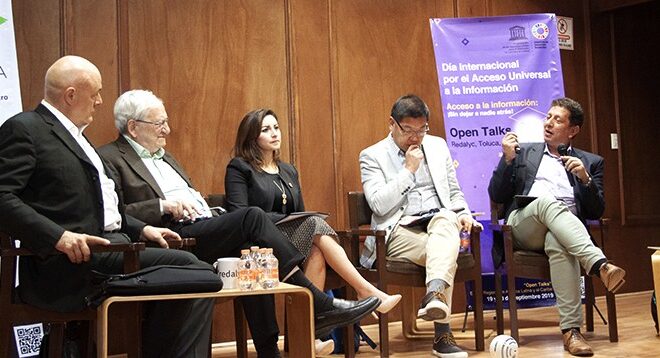Higher education will have new integration programs in Latin America

At the opening ceremony, Brazil’s Minister of Education – Camilo Santana – stressed that with CRES+5, Brazil is resuming the dialogue on the expansion and improvement of higher education in Latin America and the Caribbean and the importance of universities and federal institutes of education in the defence of democracy and social development. He also stressed that the development of higher education in Brazil has made its greatest progress in the last 20 years, starting precisely with the first government of President Luiz Inácio Lula da Silva, a president without a university degree.
Santana also announced the launch of two new programmes to promote higher education and integration with the other countries participating in the conference, with more than 120 million reais investments. In the first programme, the Brazilian government will invest 102 million reais over eight years in the Montevideo group (AUGM), which brings together 41 universities from Brazil, Argentina, Bolivia, Chile, Uruguay and Paraguay. In the second programme, Mova La América, R$20 million will be invested to offer 500 master’s and doctoral scholarships to students who want to do internships in Brazilian federal institutions. Finally, Camilo Santana stressed that investing in the expansion and improvement of higher education in Brazil is not an option, but an obligation.
Stefania Giannini, UNESCO Assistant Director-General for Education, participated in the opening with a recorded video message in which she highlighted the 4 priority points of UNESCO’s agenda in higher education: the defence of the universal right to higher education, as inequalities in access still persist; assuring quality to promote and encourage academic excellence and scientific research; promoting internationalisation to favour regional cooperation and integration, as in the case of UNESCO’s Regional and Global Conventions; and the transformation of higher education, adapting it to current and future challenges.
The Director of Unesco in Brazil, Marlova Jovchelovitch Noleto, stressed that education is a fundamental right to guarantee access to all other rights, being “the cornerstone and the engine of more just, inclusive, resilient and democratic societies”. Marlova recalled that expanding access to higher education is extremely important to reduce inequalities in the Latin American and Caribbean region.
A construction in stages
CRES+5 is the follow-up meeting to the Third Regional Conference on Higher Education (CRES) 2018. The preparatory meetings for the gathering in Brasilia took place in 2023 and 2024. In March, September and November 2023 they took place in the cities of Córdoba (Argentina), Puebla (Mexico) and Asunción (Paraguay), respectively. In 2024, they were held in February in Havana (Cuba).
The discussions revolved around 12 thematic axes, which were debated by working groups that analysed the achievements of higher education in the region, as well as the challenges in the wake of the Covid-19 pandemic.
This afternoon, symposia will be held on the following themes: 1 – Higher education as part of the education system in Latin America and the Caribbean; 2 – Higher education, cultural diversity and interculturality in Latin America; and 3 – Higher Education, internationalization and integration, as well as a round table with the participants of the debates from the different thematic groups.
The meeting will have thematic symposia every day until the 15th, in the afternoons. Forums, round tables, conferences and plenary meetings will happen in the mornings to prepare the final declaration of the conference, analysing the scenarios and proposals for the sector in the region.
You can consult the pictures taken during the event on the UNESCO IESALC’s Flickr.
RELATED ITEMS







